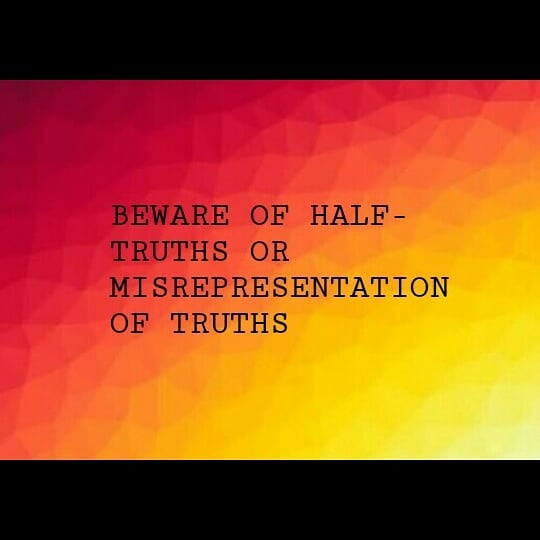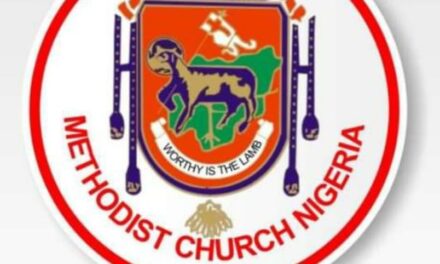In Luke 16, Jesus commends shrewdness. To be shrewd in the context of a missional practices and skills goes beyond clever actions, plots, schemes, and speeches where the heros or heroines do something for the audience applauds and acceptance. Beyond the use of money to secure our future, Jesus’ parable points us to our ultimate missional future, our eternal future. The use of money is a good test of the Lordship of Jesus Christ. Money with a lot of power can be use for good or evil hence, Jesus’ parable of the shrewd steward summons us to use our calling and the resources we have wisely, carefully and thoughtfully. In a world that appreciates shrewdness in others, Jesus’ parable invites us to use our positions, offices, and material goods as church in a way that will foster truth, genuine faith and obedience, essential for our eternal home.
In an age of misrepresentation, we live in a world that celebrates corrupt leaders, and praises ‘career criminal mastermind and thief’ hence, Jesus’ parable is counter-cultural. Literally, Jesus seems to be commending dishonesty and misrepresentation, however, Jesus’ parable condemns actions and schemes that covers sin. We read about a certain rich man, who accused his steward of wasting his goods. Jesus’ parable reminds us the similar words which will be spoken to every believer at the judgement Seat of Christ. The rich man terminated his steward. Indeed, nothing is permanent, even death is not permanent. Jesus’ parable of the shrewd steward invites us to ask ourselves especially as an individual, as churches and as nations, are we attending very well to the Lord’s business of soul saving? It is possible to negotiate with the people what they want in order to keep the system running just as the steward negotiated with the debtors of his master to sign new lesser and less demanding contracts. The shrewdness of the steward by using his survival clever scheme to figure out a way to manipulate the debtors (sinners) and their money to secure a temporary relief provides a reflection for the church and leadership renewal.
There is a lesson here, instead of repenting of his failures, the steward ‘said within himself, what shall I do?’ The steward’s pride of life was the beginning of his destruction. The solution to the problem of the church and our nations is not about our personal pride or scheme but obedience to God’s Word. The deceitful steward started to make his own clever plan and scheme, a misrepresentation of his master’s plan, though very heroic in the human eyes and hears. He started to make plan for self survival so as not to lose his position. His maintenance scheme to provide a future for himself was a misrepresentation of his master’s will though very shrewd in dealing with his fellow unbelievers. In his personal scheme, the steward was more concern about how his master’s debtors may receive him into their houses, good hospitality at the expense of his eternal home in Christ Jesus. He therefore summoned his master’s debtors one by one. He said to the first, “How much do you owe my master?” He said, “A hundred measures of oil.” He said to him, “Take your bill, and sit down quickly and write fifty.” Then he said to another, “And how much do you owe?” He said, “A hundred measures of wheat.” He said to him, “Take your bill, and write eighty.”
In the human eyes, the rich man commended the dishonest and deceitful steward for his shrewdness. The truth is that human seductive shrewdness may give people a temporary scheme of joy, the end is eternal sorrow. The reflection is that, the sons of this world, that’s unbelievers, people, the leadership, the church who don’t follow Jesus’ commands are more shrewd in dealing with their own generation than the sons of light (Lk 16:8).
In our nature and culture of self-centrednesss, the mind set is for the employer, boss, or the rich man to accumulate wealth and people are there to enhance the process in every way hence, the problem of greed and corruption. Beyond managing empire and wealth creation for the rich man, people also desire it personally. Today, the problem of the church and our nations like the rich man and his steward in Jesus’ parable is that, it is easy to forget who we are and our place in like manner. Just as the rich man had succumbed to his own self-centred nature and culture and had forgotten God who had created him and created him for a purpose, his steward had also forgotten who he was and his place in life towards his employer. Dear friends, God the Almighty, the Ultimate Rich God in Christ Jesus has created each one of us and especially raised the church through us for a missional purpose, rescuing the lost. Jesus in his parable is saying that if God’s people would use the same determination, effort and ingenuity that the world (like the rich man and his steward) uses in to gain their ends and if they would put that to the work of the Kingdom, the Church would be a very different place and the world would be a very different place too.
Are our actions from warmed and obedient hearts or just a popular scheme to get away and be in good record of people, church or government? The mission and purpose of God for us goes beyond managing people to like us. No one can serve two master. Beloved, who is really on the throne of your heart? God or people you want to just keep? The questions suggests that, are there actions and policies that covers sin in our nations and churches? Are we loving and doing nice things as shrewd leaders, nations and churches to make people think we are alright and loving without hope of eternal home? Jesus’ parable of the shrewd steward invite us to overcome the yoke of shrewd leadership and spiritual misrepresentations in our nations, churches, and public places.











Recent Comments